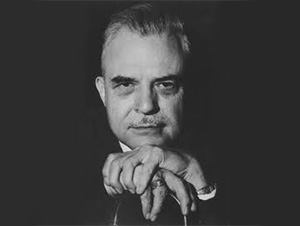Before you read this article, have you read these 5 books? Get the reading list to base your life on, plus 7 strategies I stole from marketing geniuses to promote your work.

There is a golden thread of wisdom that has run through the past 2,000 years, from the Stoics to social media influencers: the company we keep sets the standard for the type of person we become.
“It is a true proverb, that if you live with a lame man, you will learn to limp.”
― Plutarch, First Century AD
“Tell me with whom you associate with, and I will tell you who you are.” – Johann Wolfgang von Goethe, 1800
“You are the average of the five people you spend the most time with.” ― Jim Rohn, 1990
We may understand this in theory, but if we take a hard look in the mirror, can we honestly say our behavior aligns with what (or who) is best for us?
How often do we succumb to the “nice guy/girl” approach where we tolerate everyone, even at the expense of our own sanity? How often do we stoop down to the level of those who want nothing else than someone to validate their nonsense?
In elementary school, we were encouraged to be friends with all of our classmates. At work, we are told to accommodate to everyone at the office, even the people who thrive on their own misery.
We might shrug off encounters with less-than-desirable acquaintances—after all, it’s only a few minutes our hours out of our day. But there are hidden costs to associating with toxic people, regardless of how long they’re around. They chip away at our sanity. They dull our spirit. Toxic people are no different than physical illnesses: they latch onto anyone they can and neutralize their good qualities.
In his book, The Laws of Human Nature, Robert Greene notes that our best defense against toxic people “is to be armed with knowledge…to notice the signs earlier on, and to not get involved or to disengage from them as quickly as possible.”
With that said, here are four types of people to avoid at all costs.
The Crybaby
You might initially empathize with this person as they reel you in with stories about wrongdoing against them. But if you pay close attention, you’ll notice a pattern: they are always the victim, no matter the circumstances. The world is out to get them. If you suggest they take accountability for their situation, they interpret it as a personal attack—you are suddenly part of the problem. There is no use in offering solutions to a crybaby. They take greater pleasure in misery than action.
The Drama Queen/King
If you’ve ever been dragged into a romantic saga or office conflict and wondered how or why you got involved, you’ve dealt with a Drama Queen/King. They have a knack for storytelling, making it easy to get sucked into their world as if you’re watching a movie. They can be fun in doses because of their entertaining qualities, but embroiling yourself in their everyday theatrics is a recipe for exhaustion.
When you deal with a Drama Queen/King, every conflict, no matter how trivial, is amplified to the highest degree. Nothing can be dropped. You must always take their side, lest you become the protagonist in their next saga. You might feel guilty for not getting involved, but you’ll save yourself priceless time and mental energy in the long run.
The Leech
This person is usually more charming and strategic than those around them, making them difficult to ward off. The warning signs of a leech are easy to spot: they will ask for “a quick favor” or “a minute to pick your brain.” And why should you say no? They’re not asking for much and you’re just trying to be helpful. But these seemingly insignificant requests are almost always a mask for some ulterior motive: once they get a foot in the door, their favors will increase in size and complexity. Before you know it, you’re putty in their hands. Leeches usually won’t go after your money, but instead will rob you of your time and energy (which are more valuable.)
The Slacker
Laziness, like a drug, is addictive and destructive—and the Slacker is the needle you shoot up with. Associating with people who couldn’t care less about doing anything worthwhile with their life makes it seem okay to do the same. When dealing with a Slacker, you’ll catch yourself thinking things like, I’ve done enough to take a break; I’ll just do it tomorrow; I guess it won’t hurt to sleep another hour and so on.
Slackers are the most dangerous if they live with you. They tempt you with all kinds of mindless entertainment, junk food, and shortcuts while making you feel guilty for having any traces of ambition or discipline. Make a clean cut from him or her and watch your productivity and mood improve simultaneously.
Here are 5 books to base your life on, plus 7 strategies I stole from marketing geniuses to promote your work.



 You’re probably wondering what any of this has to do with your own creative breakthrough. So, in the words of Kevin Hart, let me explain.
You’re probably wondering what any of this has to do with your own creative breakthrough. So, in the words of Kevin Hart, let me explain.

 On that note, here are five books that I guarantee will add value to your life, even if you only have five dollars to your name.
On that note, here are five books that I guarantee will add value to your life, even if you only have five dollars to your name.


 Self-taught and with a chip on his shoulder, it’s Adam’s minimalist approach to photography that appeals to so many viewers. To this day, he uses nothing besides the camera he bought three years ago. No tripod. No lights. No Photoshop. It’s his one-of-a-kind twist on otherwise mundane things that compensates for going without the frills. Retailers often try persuading him to upgrade his camera, but he just smiles and politely declines.
Self-taught and with a chip on his shoulder, it’s Adam’s minimalist approach to photography that appeals to so many viewers. To this day, he uses nothing besides the camera he bought three years ago. No tripod. No lights. No Photoshop. It’s his one-of-a-kind twist on otherwise mundane things that compensates for going without the frills. Retailers often try persuading him to upgrade his camera, but he just smiles and politely declines.
 Many of Adam’s photographs feature his hand, but a closer look reveals that it’s always his left one. While this may seem trivial, it’s how he instills purpose into his art: Adam damaged his right hand in the accident that cost him his job, but showcasing his left hand serves as a reminder, if only to himself, that a tragedy always opens the door for new opportunities. What’s more, the left arm is a direct path to the heart.
Many of Adam’s photographs feature his hand, but a closer look reveals that it’s always his left one. While this may seem trivial, it’s how he instills purpose into his art: Adam damaged his right hand in the accident that cost him his job, but showcasing his left hand serves as a reminder, if only to himself, that a tragedy always opens the door for new opportunities. What’s more, the left arm is a direct path to the heart.